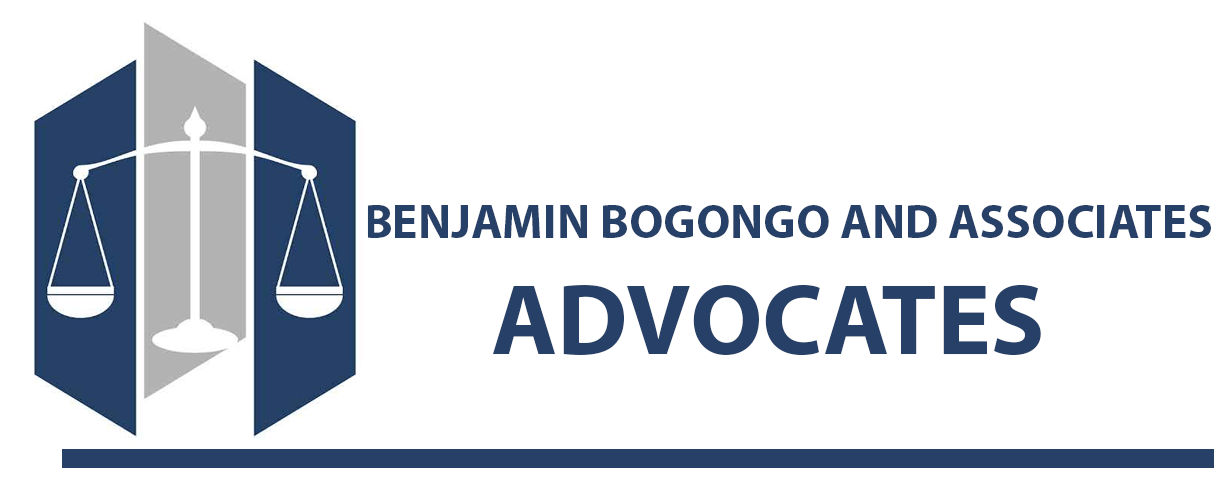Employment Law and Immigration
At Benjamin Bogongo and Associates Advocates, we specialize in providing comprehensive Employment Law and Immigration services tailored to meet the dynamic needs of businesses and individuals. Our team of experienced lawyers is dedicated to ensuring compliance with both international and local labor laws, offering strategic solutions that align with the ever-evolving employment landscape.
Navigating employment and immigration law requires expert guidance to ensure compliance and protect the rights of both employers and employees. Our dedicated team of employment and immigration lawyers offers strategic advice and representation in matters ranging from work permits and visas to employment contracts and disputes. Trust us to navigate the complexities of these areas with skill and efficiency.
Key Services
Collective Bargaining and Trade Unions: Ensure harmonious employer-employee relations with expert advice on collective bargaining, trade union matters, and adherence to international best work practices.
Employment Contracts and Remuneration: Crafting and reviewing employment contracts, determining fair remuneration, and providing guidance on employee benefit schemes.
International Work Practices: Navigating the complexities of international work practices, including non-compete restrictions, fundamental rights, and protection of employees.
Immigration Services: Facilitating seamless immigration processes for multinational businesses in Kenya, from temporary business visas to permanent residency for expatriate employees.
Why Choose Us:
Legal Compliance:
Tailored Solutions:
Strategic Advice:
Global Expertise:
Frequently Asked Questions on Employment Law
What is Employment Law?
Employment law concerns all the rights and obligations within the employer-employee relationship.
What is a Contract of employment?
Employment contract for a period of three months must be in writing [s 9(i)]and the employer is responsible for drawing the contract and ensuring that the employee signifies consent to the contract by signing his name or fingerprint in the presence of a witness. Further, the employer is supposed to explain to the employee the terms in a language understood by the employee
Critical in employment law is entitlement to annual leave, public holidays, sick leave, and notice period. In the event there is a Collective agreement the employer must include it in a contract of employment where applicable.
What are foreign contracts?
In the event, an employee is to perform his duties outside Kenya for more than one month and currency of payment, additional payment, and terms and conditions on return.
What is the importance of employment law in the workplace?
With the promulgation of the Constitution of Kenya 2010, and the elevation of the Employment & Labour Relations Court to the status of the High Court, litigation surrounding workplace rights has been in the spotlight. High-profile cases of sexual harassment have resulted in companies being sued for a huge number of damages. Women are openly coming out to speak of sexual harassment in the workplace. This points to the important role of Human Resource Managers in protecting workers’ rights.
In addition to protecting employees from discriminatory practices and harassment, these laws cover hiring and firing, workplace safety, fair pay, family, and medical leave, and much more.
What Are Some Common Causes of Employment Law Cases?
A lot of employment law cases are focused on the rights of employees being harmed or not respected in some way. So some of the most common examples of employment law in action are related to situations in which employees have been treated unfairly or wrongfully by their employers. Such examples include:
Discrimination – Some employees may feel that they have a case to make if they have been discriminated against at work due to their ethnicity, background, orientation, or other personal factors.
Harassment – A lot of employment law cases revolve around harassment in the workplace, with many people being victims of unwanted advances, bullying, and inappropriate behavior on the part of their colleagues or employers.
Wages – Employees have the right to a certain minimum wage and overtime. If these rights are infringed, the employee in question may be able to claim against their employer.
Wrongful Termination – This sort of case occurs when an employee is believed to have been fired or terminated from their job for an unjust reason. Employers are not legally allowed to fire employees for personal reasons or because of discrimination
Are employers obligated to investigate reports of workplace harassment?
Yes, the Occupational Health and Safety Act, requires employers to have a workplace harassment policy and program that sets out how incidents or complaints of workplace harassment will be investigated and addressed
Can I Be Fired for Reporting Harassment/Discrimination?
No, it is entirely illegal for any employer to fire an employee for reporting harassment or discrimination in the workplace
What is working notice?
As stated above, when an employee is terminated without cause, the employee is entitled to notice or pay in lieu. If an employee is entitled to four weeks of notice, the employer can notify the employee that their employment will be terminated in four weeks and let the employee continue to work through that period. These four weeks of work is referred to as “working notice”. Alternatively, the employer can notify an employee that their employment is being terminated immediately and pay the employee the wages that would have been earned during the four-week notice period.
When can an employer deem that an employee has resigned?
In most cases, an employee will communicate their resignation with written notice to their employer. However, in some circumstances, it is not as clear, such as an employee who has engaged in an unexplained absence from work.
Whether the employee’s conduct amounts to a resignation is determined on a case-by-case basis considering all of the facts. Kenyan courts have held that an employee’s resignation must be voluntary, clear, and unequivocal to be used as a defense to a wrongful dismissal case. If there is uncertainty or confusion regarding a resignation, the employer must act in good faith to take steps to determine the employee’s intention.
What is constructive dismissal?
Constructive dismissal is sometimes referred to as a “forced resignation”. Constructive dismissal can arise when
(i) the employer breached an express or fundamental term of the employment contract, which may or not be in written form, or
(ii) the employer’s conduct demonstrates a clear violation of the employment contract. In either of these circumstances, the employee may resign as a result of the employer’s conduct, and can be alleged that the resignation was not voluntary, and it is, in effect, a termination. The employee will be responsible for proving that they were constructively dismissed. If the claim of constructive dismissal fails, the employee will be found to have terminated the employment relationship voluntarily and will not be entitled to any wrongful dismissal damages. Some examples of conduct that may give rise to constructive dismissal are a demotion, a substantial reduction in compensation, or an intolerable workplace.
Are there special laws for certain types of employees?
Yes. Unionized employees are governed by a collective agreement a. A collective agreement is a written agreement that sets out the employment terms and conditions for unionized employees. The union and the employer must register the collective bargaining agreement for it to be binding.
To contact Benjamin Bogongo and Associate Advocates, send us an email at info@benjaminadvocates.com or call +254 793026449 or WhatsApp at your convenience. Our legal team consists of experienced employment lawyers in Kenya and will be happy to help you.

